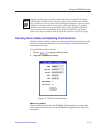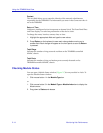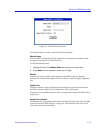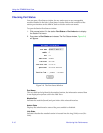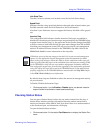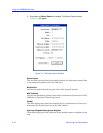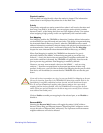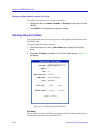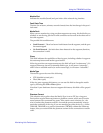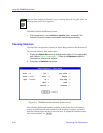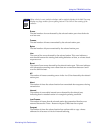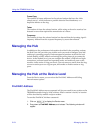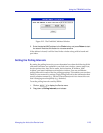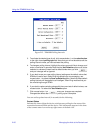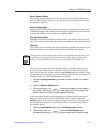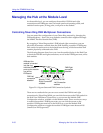
Monitoring Hub Performance 2-21
Using the TRMMIM Hub View
Module/Port
Indicates the module (board) and port index of the selected ring interface.
Fault State Time
The time (in an hours, minutes, seconds format) since the last change in the port’s
fault state.
Media Fault
When you are monitoring a ring port that supports auto-wrap, this field tells you
whether or not the ring port has a valid connection to the node at the other end of
the cable segment.
The possible link conditions are:
• Fault Detected – There has been a fault detected on the segment, and the port
has autowrapped.
• No Fault Detected – No faults have been detected on the segment; therefore,
the connection is valid.
Class
This field indicates the capabilities of the ring port, including whether it supports
the autowrap feature and media type selection.
If the ring port does not support autowrap, the field will read “noAutowrap”; if it
supports autowrap, but not a selectable media type, it will return “autowrap”;
and if it has a selectable media (as well as autowrap), it will return “selectable.”
Media Type
The media type can be one of the following:
• STP (shielded twisted pair)
• Fiber (fiber optic)
If the ring port supports this feature, you can use this field to change the media
type by selecting the STP or Fiber option.
Note that if your hardware does not support this feature, this field will be grayed
out.
Phantom Current
This selection only applies when the Media Type is set to STP for a ring port.
Devices that support autowrap feature a phantom current, which acts as carrier
sense between two connected ring ports. If the carrier sense is broken (i.e., the
wire is broken) the phantom current is lost and the ports automatically wrap to
retain the continuity of the ring. If you are attaching an older device (e.g., earlier
TRM-10R, TRM-20R) or a passive concentrator (TRC800) without the autowrap
feature, then you must disable the phantom current for the connection to remain
valid.



